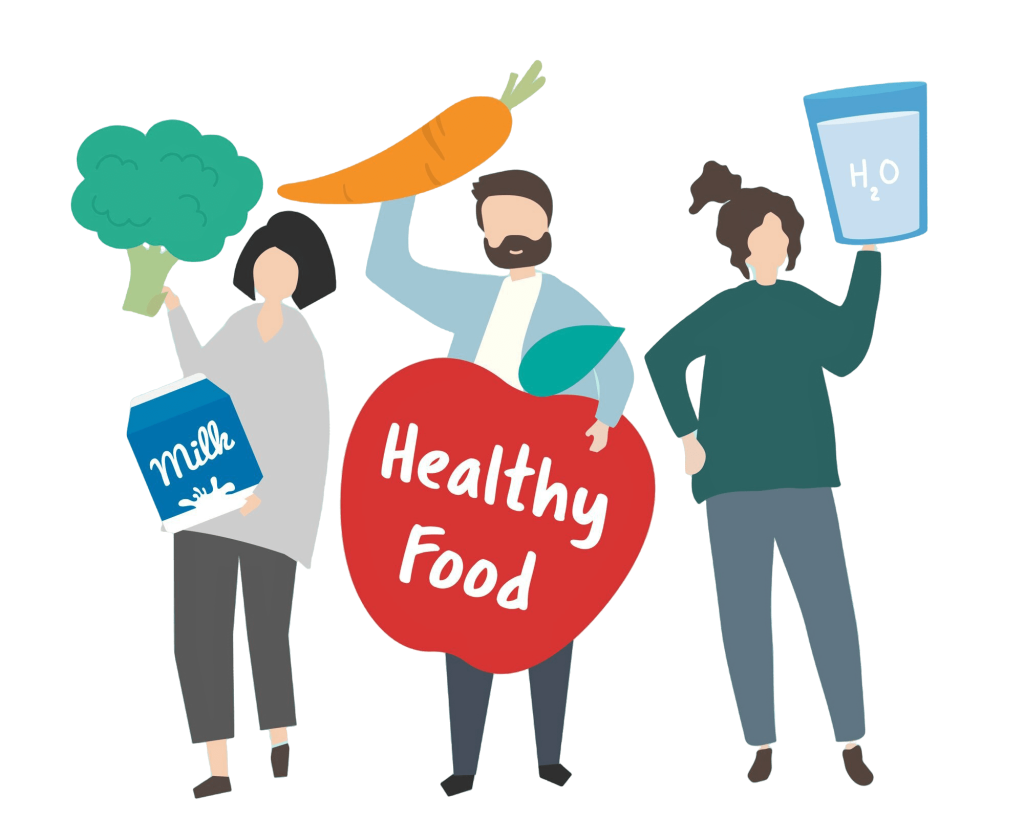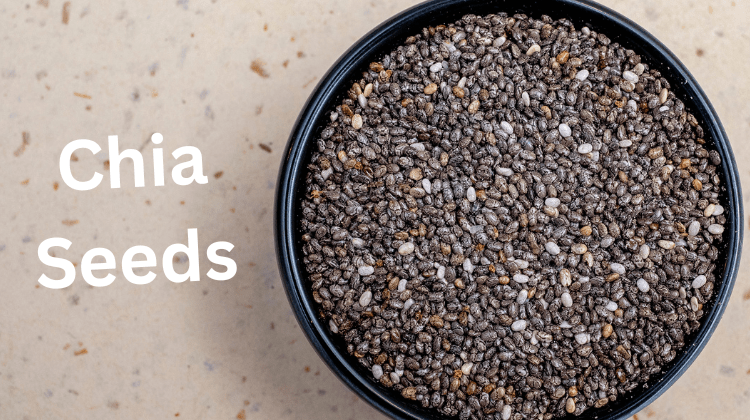Prostate health is a key concern for men, especially with age and simple dietary choices can help protect it.
Pumpkin seeds stand out as a natural source of zinc, magnesium, antioxidants, and healthy fats, all essential for prostate function and hormonal balance.
If you’re looking for a simple, natural way to support your prostate health, pumpkin seeds might be worth adding to your routine.
These small, nutrient-packed seeds are rich in zinc, magnesium, antioxidants, and healthy fats, all vital for maintaining prostate function and hormone balance.
In this article, we’ll explore how pumpkin seeds benefit prostate health, what science says about their effectiveness, and how you can include them in your daily diet.
Understanding Prostate Health
The prostate is a small, walnut-sized gland located just below the bladder in men, playing a crucial role in reproductive health. Its main job is to produce seminal fluid, the liquid that nourishes and transports sperm. As men age, the prostate naturally changes, and without proper care, it can develop conditions that affect urinary comfort, fertility, and overall wellbeing.
Why the Prostate Is Vital for Men’s Health
- Supports fertility: Produces and secretes seminal fluid necessary for sperm mobility and protection.
- Regulates urine flow: Surrounds the urethra, helping control urine release from the bladder.
- Influences hormone activity: Sensitive to testosterone and DHT (dihydrotestosterone), which affect its size and function.
Common Prostate-Related Issues Men Face
Benign Prostatic Hyperplasia (BPH)
- A non-cancerous enlargement of the prostate that can make urination difficult.
- Common in men over 50 and often linked to hormonal changes and inflammation.
Prostatitis
- Inflammation or infection of the prostate, leading to pelvic pain, burning urination, or discomfort.
- Can be acute (sudden) or chronic (long-term), often caused by bacteria or immune reactions.
Prostate Cancer
- A serious but often slow-growing cancer that starts in prostate cells.
- Early detection through screening can lead to successful management and better outcomes.
Early Signs of Prostate Problems to Watch For
- Frequent need to urinate, especially at night
- Weak or interrupted urine stream
- Pain or burning during urination or ejaculation
- Blood in urine or semen
- Persistent pelvic or lower back pain
What Makes Pumpkin Seeds So Special?
Pumpkin seeds may be tiny, but they’re packed with nutrients that play a major role in men’s health and prostate function. Known as pepitas, these seeds offer an impressive mix of zinc, magnesium, omega-3 fatty acids, antioxidants, and plant-based protein, making them one of nature’s most complete snacks for men.
Key Nutrients Found in Pumpkin Seeds
- Zinc:
Essential for prostate health, testosterone balance, and sperm quality. Low zinc levels are often linked to prostate enlargement and hormonal imbalance.
- Magnesium:
Supports muscle relaxation, nerve function, and hormone regulation. It also helps reduce inflammation — a key factor in prostate and urinary issues.
- Omega-3 Fatty Acids:
The plant-based omega-3s in pumpkin seeds (ALA) promote anti-inflammatory activity and support heart and reproductive health.
- Antioxidants (Vitamin E, Polyphenols):
Help neutralize free radicals that can damage prostate cells and accelerate aging.
- Plant Sterols (Phytosterols):
Naturally occurring compounds that may help shrink an enlarged prostate and improve urinary symptoms.
How These Nutrients Support Men’s Health
- Balances Hormones: Zinc and magnesium help regulate testosterone and DHT, reducing the risk of prostate enlargement.
- Boosts Immunity: The antioxidant and zinc combo strengthens immune defenses against infections and inflammation.
- Improves Heart & Metabolic Health: Healthy fats and magnesium support blood pressure and cholesterol levels.
- Enhances Energy & Sleep: Magnesium promotes better energy metabolism and restful sleep, both vital for men’s vitality.
How Pumpkin Seeds Support Prostate Health
Pumpkin seeds have earned their reputation as one of the most effective natural foods for maintaining prostate health. Thanks to their unique nutrient profile, especially zinc, phytosterols, and antioxidants. They help protect the prostate gland, regulate hormones, and improve urinary comfort.
Let’s break down how these tiny seeds make a big difference.
1. Rich Source of Zinc
- Zinc is one of the most essential minerals for the male reproductive system, and the prostate contains some of the highest zinc concentrations in the body.
- Supports prostate function: Zinc helps regulate cell growth and repair within the prostate, preventing inflammation and tissue overgrowth.
- Prevents enlargement and dysfunction: Studies suggest that zinc deficiency is linked to an increased risk of Benign Prostatic Hyperplasia (BPH) and even reduced sperm quality.
- Pumpkin seed advantage: Just a small handful of pumpkin seeds provides a natural, plant-based source of zinc, helping maintain optimal prostate function without supplements.
2. Anti-inflammatory Compounds
- Chronic inflammation plays a major role in prostate problems, including BPH and prostatitis. Pumpkin seeds naturally contain phytosterols (plant sterols) and antioxidants that combat this inflammation.
- Phytosterols: These compounds can help reduce prostate swelling by blocking the conversion of testosterone into DHT (dihydrotestosterone), a hormone linked to prostate enlargement.
- Antioxidants: Vitamin E and polyphenols in pumpkin seeds protect prostate cells from oxidative damage.
- Scientific support: Research has shown that men consuming pumpkin seed extract experience improved urinary flow and reduced prostate size compared to those who don’t.
3. Hormonal Regulation
- Hormonal imbalance, particularly involving testosterone and DHT, is a leading cause of prostate enlargement. Pumpkin seeds help promote balance naturally.
- DHT control: Phytosterols in pumpkin seeds may inhibit the enzyme 5-alpha reductase, which converts testosterone into DHT — the hormone that causes prostate tissue to grow.
- Natural testosterone support: Adequate zinc helps maintain healthy testosterone levels, promoting better mood, energy, and reproductive function.
- Outcome: Regular intake may reduce the risk of BPH and support a healthier hormonal environment.
4. Improved Urinary Function
- Urinary symptoms like frequent urination or weak urine flow are common with prostate issues. Pumpkin seed oil and extracts have shown notable improvements in these areas.
- Better bladder control: Studies reveal that men consuming pumpkin seed oil report less nighttime urination (nocturia) and improved bladder emptying.
- Enhanced urinary comfort: The combined action of zinc, magnesium, and anti-inflammatory compounds relaxes the bladder muscles and supports urinary tract function.
- Long-term benefit: Regular inclusion of pumpkin seeds may help maintain healthy urinary patterns and comfort as men age.
Pumpkin Seeds vs. Pumpkin Seed Oil: Which Is Better?
Both pumpkin seeds and pumpkin seed oil are excellent for prostate health but their nutrient composition and best uses slightly differ. Understanding when to use each form helps you get the most out of their benefits.
Nutrient Comparison
| Form | Key Nutrients | Best For | Notes |
| Raw Pumpkin Seeds | Zinc, magnesium, protein, fiber, omega-3s, antioxidants | Daily snacking and general prostate support | Preserve nutrients when eaten raw or lightly roasted. |
| Roasted Pumpkin Seeds | Retain minerals like zinc and magnesium but lose some antioxidants due to heat | Crunchy, flavorful snack | Choose dry-roasted and unsalted versions for a healthier option. |
| Cold-Pressed Pumpkin Seed Oil | Concentrated in phytosterols, omega-6 & omega-9 fatty acids, and antioxidants | Targeted prostate and urinary support | Use as a finishing oil or supplement – avoid cooking to preserve nutrients. |
When to Prefer Each Form
- Whole Seeds: Ideal for daily dietary use, offering a full range of nutrients including fiber and protein.
- Pumpkin Seed Oil: Preferred for therapeutic use or when focusing on urinary symptoms and hormonal balance. Studies show consistent use of the oil can improve BPH-related urinary flow and reduce inflammation.
- Combination Approach: For best results, many experts recommend combining both — eat a small handful of seeds daily and include 1-2 teaspoons of pumpkin seed oil in your diet.
How to Add Pumpkin Seeds to Your Daily Diet
Incorporating pumpkin seeds into your meals is simple and delicious. Whether you prefer them whole or as oil, consistency is key to gaining long-term benefits for prostate and overall men’s health.
Recommended Daily Intake
- Whole seeds: Around 1 ounce (≈28 grams) – roughly a small handful per day.
- Pumpkin seed oil: 1-2 teaspoons (5-10 mL) daily for targeted prostate support.
Easy Ways to Consume Pumpkin Seeds
- Raw or roasted: Enjoy as a quick snack or sprinkle over soups, cereal, or yogurt.
- Smoothies: Blend into smoothies for a nutty flavor and nutrient boost.
- Salads and meals: Add crushed or whole seeds to salads, stir-fries, or oatmeal.
- Pumpkin seed oil supplements: Take as capsules or use the oil as a salad dressing — never heat it to preserve its active compounds.
Buying Tips for Maximum Benefit
- Choose organic, unsalted, and non-roasted seeds to retain nutrients and avoid excess sodium.
- Look for cold-pressed, unrefined pumpkin seed oil in dark glass bottles to protect it from oxidation.
- Store both seeds and oil in a cool, dry place (or refrigerate the oil) to maintain freshness.
Scientific Evidence and Research Related to Pumpkin Seeds
Multiple studies have explored how their nutrients, particularly phytosterols, zinc, and antioxidants, contribute to reducing inflammation and improving urinary symptoms associated with Benign Prostatic Hyperplasia (BPH).
Journal of Medicinal Food (2014):
A study published in Journal of Medicinal Food, found that men with BPH who consumed pumpkin seed oil showed significant improvement in urinary flow and reduced nighttime urination compared to a placebo group.
Nutrition Research and Practice:
A research paper reported that phytosterol-rich pumpkin seed extracts may help inhibit prostate growth by blocking the enzyme responsible for converting testosterone into DHT (a hormone linked to prostate enlargement).
Tip: Always consult your urologist or healthcare provider before using pumpkin seed oil or supplements, especially if you’re taking medication for prostate or hormonal conditions.
Other Lifestyle Tips for a Healthy Prostate
In addition to including pumpkin seeds in your diet, adopting a healthy lifestyle can further support your prostate and overall well-being:
- Stay physically active: Regular exercise helps maintain hormonal balance, reduce inflammation, and improve blood circulation.
- Maintain a healthy weight: Excess body fat, especially around the abdomen, can increase the risk of prostate enlargement.
- Eat a balanced diet: Focus on fruits, vegetables, and whole grains for better nutrient intake.
- Limit red meat and processed foods: These can increase oxidative stress and inflammation, negatively affecting prostate health.
- Include omega-3s: Foods like salmon, walnuts, and flaxseeds provide healthy fats that help control inflammation.
- Add lycopene-rich foods: Tomatoes and watermelon are great sources of lycopene, known to support prostate health.
- Drink green tea: Rich in antioxidants, it may help reduce prostate inflammation and support urinary function.
Possible Side Effects and Precautions
While pumpkin seeds are generally safe and well-tolerated, it’s always smart to be aware of a few precautions:
- Allergies: Some individuals may experience allergic reactions such as itching, rash, or swelling after eating pumpkin seeds. If you notice any of these symptoms, stop consuming them and consult a doctor immediately.
- Digestive sensitivity: Eating too many seeds at once can cause bloating, gas, or mild stomach discomfort, especially for those with sensitive digestion.
- Medication interactions: Since pumpkin seeds can have mild diuretic effects, people taking diuretics, blood pressure medications, or anti-anxiety drugs should talk to their healthcare provider before adding large amounts to their diet.
- Watch portion size: Though healthy, pumpkin seeds are calorie-dense. A small handful (about 1 ounce or 28 grams) per day is enough to gain the benefits without overloading on calories or fats.
Summary
Pumpkin seeds are rich in zinc, magnesium, and antioxidants, making them excellent for supporting prostate and hormonal health.
They help reduce inflammation, ease urinary discomfort, and promote overall wellness, including heart and immune function.
For best results, include a small serving of raw or lightly roasted pumpkin seeds daily, along with a healthy lifestyle and regular check-ups.
FAQs About Pumpkin Seeds & Prostate Health
Are pumpkin seeds good for an enlarged prostate?
Yes, pumpkin seeds are rich in zinc, phytosterols, and antioxidants, which can help reduce inflammation and support better urinary function in men with an enlarged prostate (BPH). Several studies suggest that regular consumption may help ease urinary symptoms and promote prostate wellness naturally.
How many pumpkin seeds should I eat daily for prostate health?
For most men, a handful (about 1 ounce or 25–30 grams) of raw or lightly roasted pumpkin seeds per day is ideal. This provides enough zinc and essential nutrients to support prostate health without adding excessive calories.
Can pumpkin seed oil reduce prostate inflammation?
Yes, cold-pressed pumpkin seed oil contains concentrated amounts of omega-3 fatty acids and phytosterols that may help reduce prostate swelling and improve urinary flow. It’s often used as a natural supplement for managing mild prostate discomfort or BPH symptoms.
Do pumpkin seeds boost testosterone naturally?
Pumpkin seeds are a natural source of zinc, a mineral crucial for testosterone production. Regular intake may help maintain healthy hormone levels and support male reproductive health, especially when combined with balanced nutrition and exercise.
Are there any side effects of eating too many pumpkin seeds?
While generally safe, eating large amounts can cause digestive discomfort, bloating, or excess calorie intake. Men with seed allergies or sensitive stomachs should start with small portions and consult a doctor if unsure.



